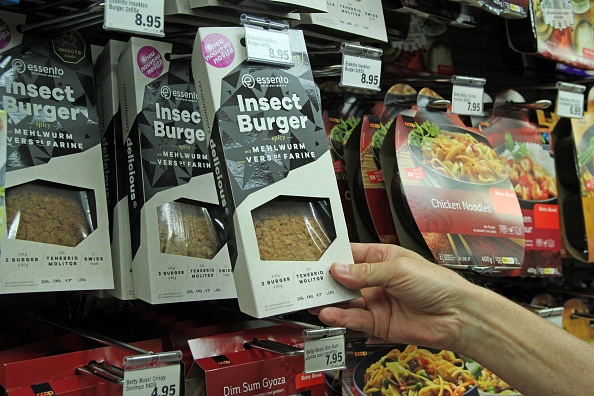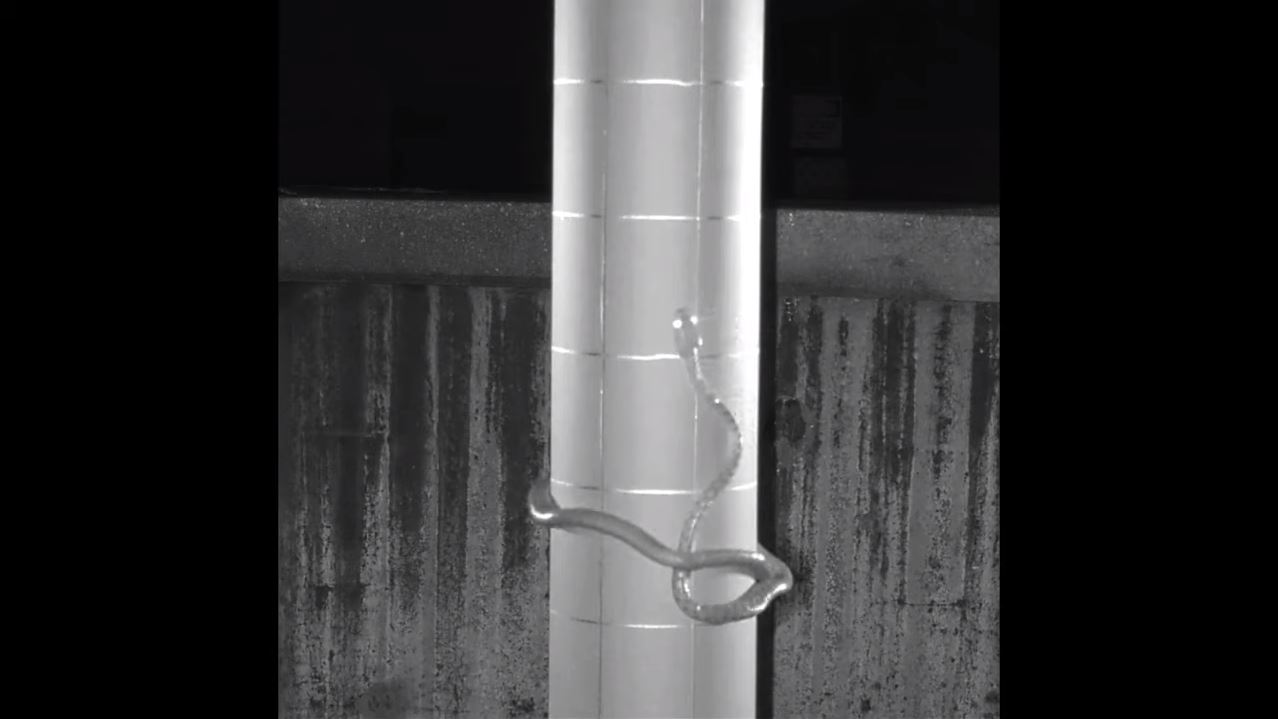Between a global pandemic, political unrest, natural disasters and humanitarian crises, there are plenty of bleak stories making headlines every day. So here is a pick of the week's funny, quirky and surprising news from around the world to help alleviate the gloom.
A piece of cake

Cakes in the shape of syringes are seen at the Schuerener Backparadies bakery as the vaccination rollout against COVID-19 continues, in Dortmund, Germany, January 9, 2021. /Reuters
Cakes in the shape of syringes are seen at the Schuerener Backparadies bakery as the vaccination rollout against COVID-19 continues, in Dortmund, Germany, January 9, 2021. /Reuters
Getting a shot can be painful but what if it came in the form of a cake? Scientists haven't yet figured out how to administer vaccines via sweet treats but one German bakery is halfway there: Das Schuerener Backparadies in Dortmund has started making cute cakes that look like syringes in an effort to encourage people to get the COVID-19 vaccine.
The cakes are covered in a sheet of white marzipan and decorated to look like syringes, with tags saying "2021 – Bye bye corona" and "Bye COVID-19, you won't be missed."
For owner Tim Koertuem, this is a treat that is clearly good for you: "It is a vaccine without any side effects. And you can come back and get another one because it's so yummy."
If the COVID-19 cake concept sounds familiar, it's because this bakery already made headlines in the spring of 2020: as the whole world was going crazy for toilet paper, it created cakes that looked like very realistic loo rolls.
Sweet and topical!
Worm curry, coming up

Swiss retailer Coop started selling insect foodstuffs, including burgers made from mealworm, already in 2017. Here, Insect Burgers are seen on sale in Geneva, Switzerland, August 21, 2017. /Getty
Swiss retailer Coop started selling insect foodstuffs, including burgers made from mealworm, already in 2017. Here, Insect Burgers are seen on sale in Geneva, Switzerland, August 21, 2017. /Getty
Snacking on insects is usually associated with adventure travel and wild reality shows but it could soon become a staple in Europe.
On Wednesday, mealworms, a type of beetle larvae, became the first insects to be approved for human food consumption by the European Food Safety Authority (EFSA). They were previously already used in pet food.
High in protein, fat and fibre, the tiny larvae could soon be used whole and dried in dishes like stews and curry, or ground into flour to make pasta or bread.
"There are clear environmental and economic benefits if you substitute traditional sources of animal proteins with those that require less feed, produce less waste and result in fewer greenhouse gas emissions," Mario Mazzocchi, an expert on food policy and consumer behavior, noted in an EFSA statement.
According to The Guardian, when dried, the mealworms "taste a lot like peanuts." How quickly lovers of fine cuisine will turn to them for snacks however remains to be seen.
Happy woof? Or sad woof?

A dog owner tries out Petpuls, an AI-powered smart dog collar, with her dog in Seoul, South Korea, January 11, 2021. /Reuters
A dog owner tries out Petpuls, an AI-powered smart dog collar, with her dog in Seoul, South Korea, January 11, 2021. /Reuters
In the Pixar film "Up," Dug the golden retriever shocks his human counterparts by speaking to them in English, thanks to a special collar.
Now a South Korean company has also developed an AI-powered dog collar and, although it doesn't quite translate your dog's barks into full sentences, it can interpret how he or she feels.
Using voice-recognition software, the smart collar can analyze a bark and detect whether it is happy, angry, sad, anxious or relaxed, according to Petpuls Lab, which developed the new gadget.
And apparently, the technology is 90-percent accurate, according to Seoul National University, which tested it.
Petpuls Lab began gathering different types of barks in 2017, ending up with a database of about 10,000 samples from 50 breeds. Based on this, it developed the algorithm used by the collar.
"This device gives a dog a voice so that humans can understand," Andrew Gil, Petpuls Lab's director of global marketing, told Reuters.
Next step: canine-to-English translation devices?
Lasso snake

Screenshot of a video posted on YouTube by Bruce Jayne, biology professor at the University of Cincinnatti and one of the researchers who conducted the study. /@BruceJayne
Screenshot of a video posted on YouTube by Bruce Jayne, biology professor at the University of Cincinnatti and one of the researchers who conducted the study. /@BruceJayne
2020 brought us murder hornets, 2021 has… lasso snakes.
Scientists from Colorado State University and the University of Cincinnati discovered this strange phenomenon by chance while working on a bird project in Guam, a U.S. territory.
The researchers had put up baffles, or large smooth cylinders, to prevent snakes climbing up to bird boxes set up to protect a rare local species.
But they were soon astonished to see this did not stop brown tree snakes. Video captured one particularly daring creature edging itself up the cylinder, which was about 20 centimeters in diameter, having looped itself around it like a lasso.
"We watched that part of the video about 15 times. It was a shocker. Nothing I'd ever seen compares to it," researcher Tom Seibert said in a statement. "We didn't expect that the brown tree snake would be able to find a way around the baffle."
This lasso trick did take some effort: the researchers noted the snake breathed heavily, often slipped and had to stop to rest.
You can see the video for yourself here, but warning: it's not for the squeamish!
Fore!

A greenkeeper works on the fairway at Fota Island Golf Club in Cork, Ireland, as it prepares to re-open following a suspension on all golfing activity to contain the spread of COVID-19, May 17, 2020. /Getty
A greenkeeper works on the fairway at Fota Island Golf Club in Cork, Ireland, as it prepares to re-open following a suspension on all golfing activity to contain the spread of COVID-19, May 17, 2020. /Getty
How do you keep attracting tourists, while making sure they comply with two-week quarantines to prevent COVID-19 from spreading? For Thailand's Tourism Minister Phiphat Ratchakitprakarn, the answer is easy: stick them in a golf resort.
Phiphat said on Monday that he had proposed a plan that would allow foreigners with a medical certificate to quarantine at some of Thailand's many golf resorts.
The perk: rather than being confined to their rooms, they would be able to move around freely and play 18 holes anytime they like.
Thailand has long been a favorite destination for tourists, but the global pandemic hit the sector hard, forcing the country to close its borders.
Phiphat's plan still needs a green light from the cabinet but it all goes well, foreign tourists can start packing their golf clubs and practicing that swing!
Read more:
ICYMI: The week's quirky news from around the world – January 8, 2021
ICYMI: The week's quirky news from around the world – January 1, 2021

